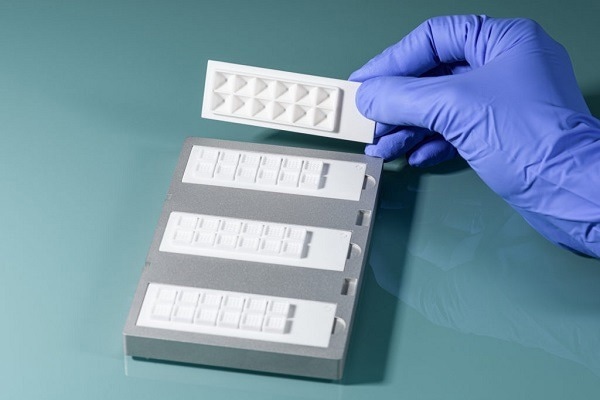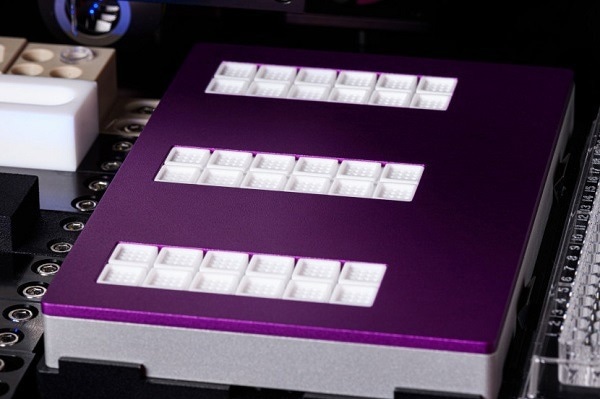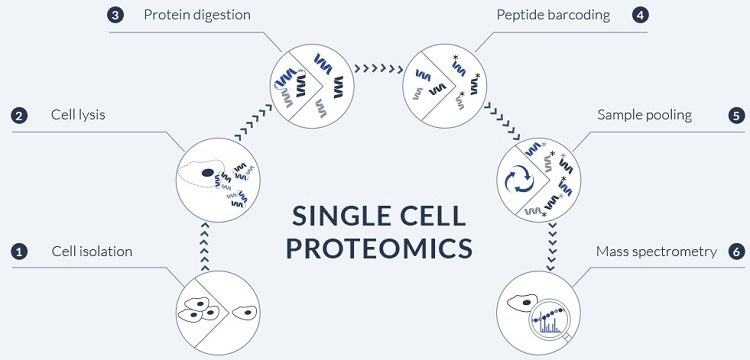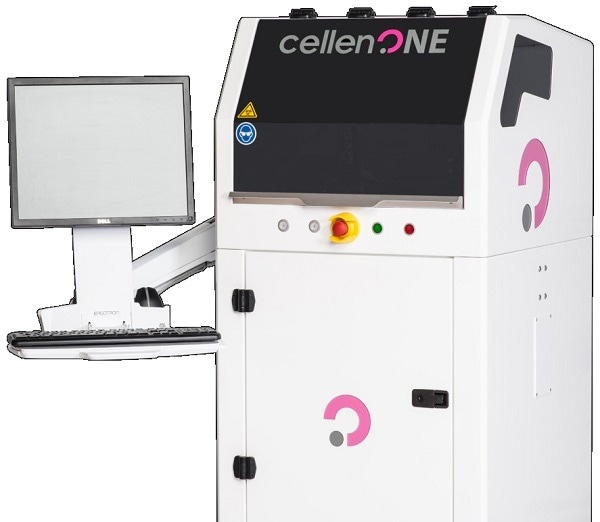Overview
proteoCHIP 12*16 is the first solution for miniaturized single cell proteomics sample preparation from start to finish for multiplex MS-based analysis.
Features
The proteoCHIP 12*16, with its ideal design and accessories, is a unique solution that expands the possibilities of cellenONE® technology by enabling compact sample preparation of individual cells for multiplex single cell proteomics operations. It supports the entire front-end of mass spectrometry on cellenONE®, including the incubation phases.

Image Credit: Cellenion
The proteoCHIP 12*16 has a microscope slide footprint, allowing for innovative nanoliter-scale single cell proteomics applications.
Each proteoCHIP comprises 12 arrays (pools) of 16 wells each, allowing for TMTpro peptide labeling (either 11-plex or 16-plex). The cellenONE can process up to three chips per run.
The cells can be easily pooled after labeling with the proteoCHIP Funnel. All of the adapters needed to use proteoCHIP and Funnels with cellenONE, centrifuge, and LC-MS/MS autosampler are included in a specialized Accessory Kit.

Image Credit: Cellenion
Benefits of proteoCHIP 12*16
- Standardization: Automatic dispensing rather than human pipetting allows for greater reproducibility
- Process safety: A one-of-a-kind design and material avoid cross-contamination, while prefilling with oil prevents evaporation
- Recovery: Direct injection through autosampler results in maximal liquid recovery and minimal peptide loss
- Miniaturization: Nanoliter reaction volumes reduce reagent costs while increasing sensitivity
- Data quality: Identify and quantify over 1500 proteins in a single run, with an excellent signal-to-noise ratio (even with low or no carrier)
- Throughput: cellenONE can isolate and prepare up to 576 single cells each run
proteoCHIP 12*16 workflow

Image Credit: Cellenion
proteoCHIP 12*16 runs on
- Precision reagent dispensing (pL–nL) for sample preparation
- Image-based single cell selection and isolation (morphology and fluorescence)
- Environmental controls for on-deck incubation

Image Credit: Cellenion